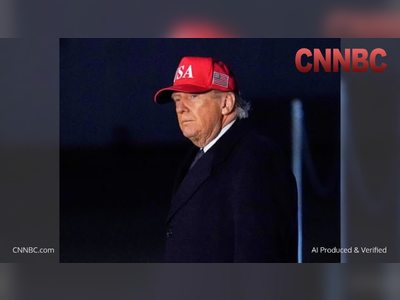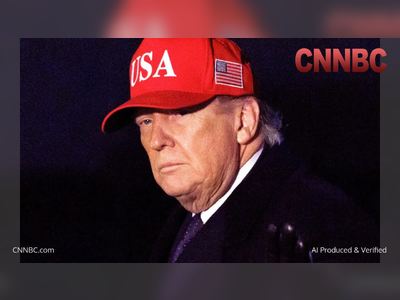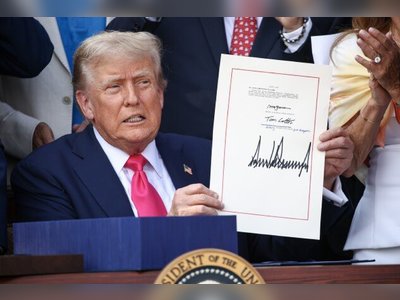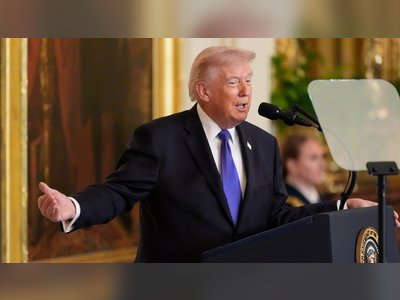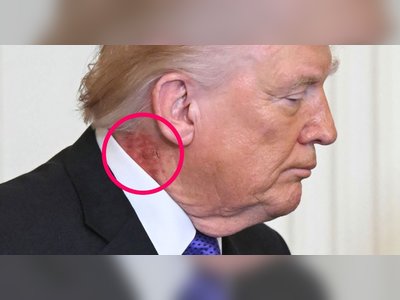
US Senate Confirms Marco Rubio as Secretary of State
Rubio becomes the first confirmed member of Donald Trump's new Cabinet following a unanimous Senate vote.
The United States Senate has confirmed Marco Rubio as the Secretary of State, marking the first confirmation for President Donald Trump's new Cabinet.
The Senate's unanimous 99-0 vote highlights Rubio as one of the least controversial nominees presented by the administration.
Marco Rubio, a Republican senator from Florida, is recognized for his extensive understanding of American foreign policy.
His confirmation, aligned with tradition, occurred shortly after the inauguration ceremony, emphasizing the importance of national security positions at the start of a presidential term.
Senator Chuck Grassley of Iowa noted Rubio's intellect and proficiency in foreign policy, reflecting a sentiment shared across the Senate chamber.
Rubio's nomination was advanced late Monday by the Senate Foreign Relations Committee, positioning him to succeed outgoing Secretary of State Antony Blinken.
As Secretary of State, Marco Rubio becomes the first Latino to hold the position.
Born to Cuban immigrants in Miami, Rubio has been active in shaping foreign policy, especially concerning South America.
Known for his strong stance on China's global influence, Rubio has maintained a prominent role in the Senate Foreign Relations Committee for over a decade.
The confirmation process for Trump's Cabinet is underway, with further votes expected.
Other nominees, such as John Ratcliffe for CIA Director, anticipate swift confirmation, whereas discussions remain ongoing for positions such as the Secretary of Defense and Director of National Intelligence.
Senate Majority Leader John Thune confirmed that voting is imminent for additional nominees, reflecting the broader push to solidify Trump's Cabinet.
The current Senate configuration, diminished temporarily to a 52-seat Republican majority due to Vice President JD Vance’s resignation, underscores the necessity for cohesiveness within the party.
Any opposition may prolong the confirmation process.
While some Democrats signal readiness to collaborate with Trump's administration, others reserve opposition for nominees they deem unsuitable.
Democratic Leader Chuck Schumer emphasized the party's discerning approach, neither unduly blocking nor rubber-stamping nominees.
The new administration enters a phase of substantial legislative procedure as Senate committees conduct thorough hearings for remaining nominees.
The political landscape suggests upcoming debates surrounding key positions, each pivotal as Trump assumes his second presidential term.
The Senate's unanimous 99-0 vote highlights Rubio as one of the least controversial nominees presented by the administration.
Marco Rubio, a Republican senator from Florida, is recognized for his extensive understanding of American foreign policy.
His confirmation, aligned with tradition, occurred shortly after the inauguration ceremony, emphasizing the importance of national security positions at the start of a presidential term.
Senator Chuck Grassley of Iowa noted Rubio's intellect and proficiency in foreign policy, reflecting a sentiment shared across the Senate chamber.
Rubio's nomination was advanced late Monday by the Senate Foreign Relations Committee, positioning him to succeed outgoing Secretary of State Antony Blinken.
As Secretary of State, Marco Rubio becomes the first Latino to hold the position.
Born to Cuban immigrants in Miami, Rubio has been active in shaping foreign policy, especially concerning South America.
Known for his strong stance on China's global influence, Rubio has maintained a prominent role in the Senate Foreign Relations Committee for over a decade.
The confirmation process for Trump's Cabinet is underway, with further votes expected.
Other nominees, such as John Ratcliffe for CIA Director, anticipate swift confirmation, whereas discussions remain ongoing for positions such as the Secretary of Defense and Director of National Intelligence.
Senate Majority Leader John Thune confirmed that voting is imminent for additional nominees, reflecting the broader push to solidify Trump's Cabinet.
The current Senate configuration, diminished temporarily to a 52-seat Republican majority due to Vice President JD Vance’s resignation, underscores the necessity for cohesiveness within the party.
Any opposition may prolong the confirmation process.
While some Democrats signal readiness to collaborate with Trump's administration, others reserve opposition for nominees they deem unsuitable.
Democratic Leader Chuck Schumer emphasized the party's discerning approach, neither unduly blocking nor rubber-stamping nominees.
The new administration enters a phase of substantial legislative procedure as Senate committees conduct thorough hearings for remaining nominees.
The political landscape suggests upcoming debates surrounding key positions, each pivotal as Trump assumes his second presidential term.



